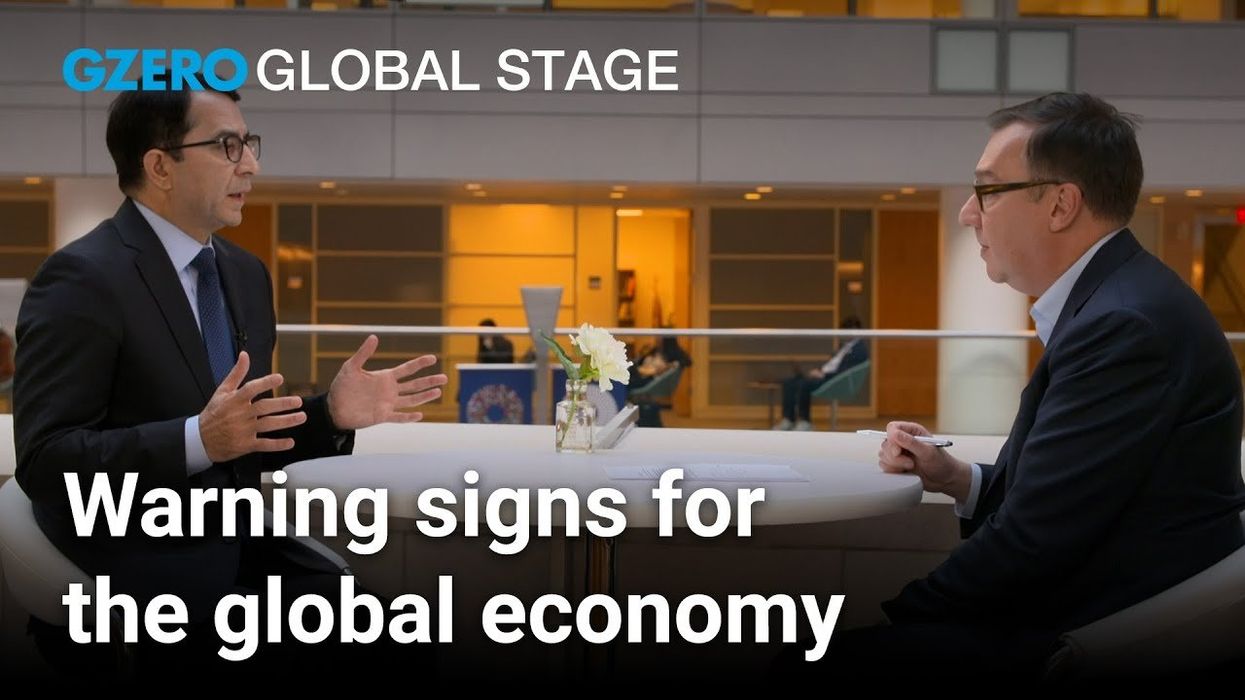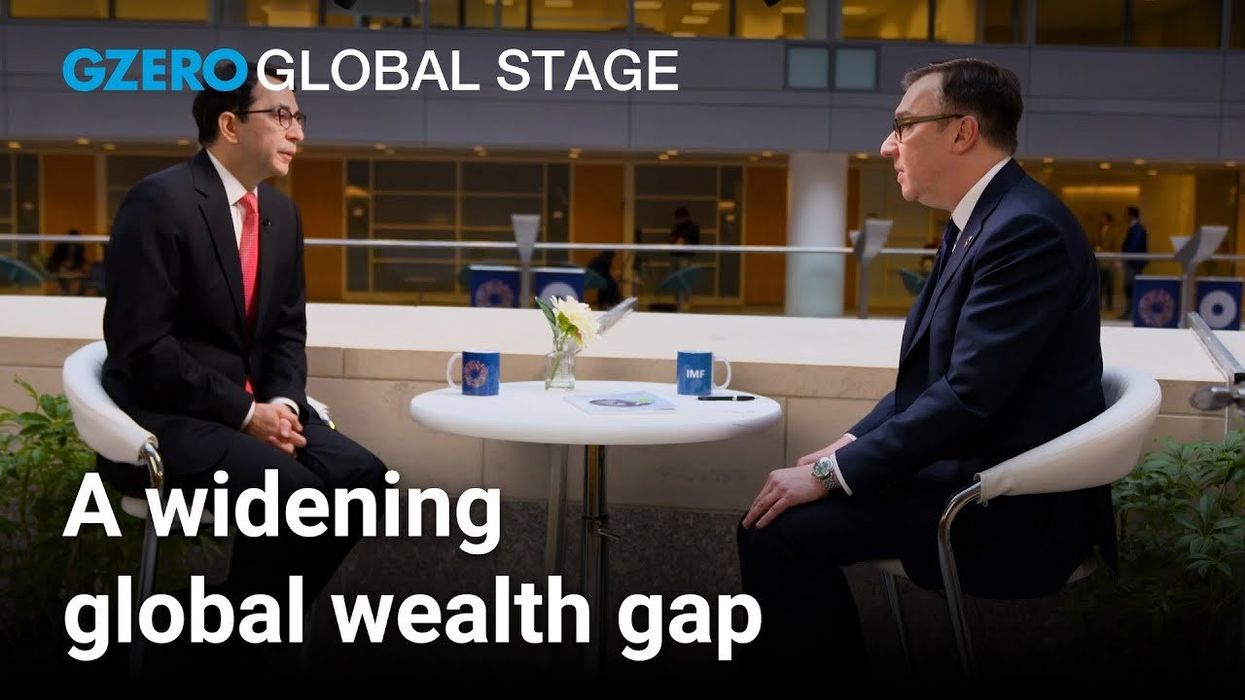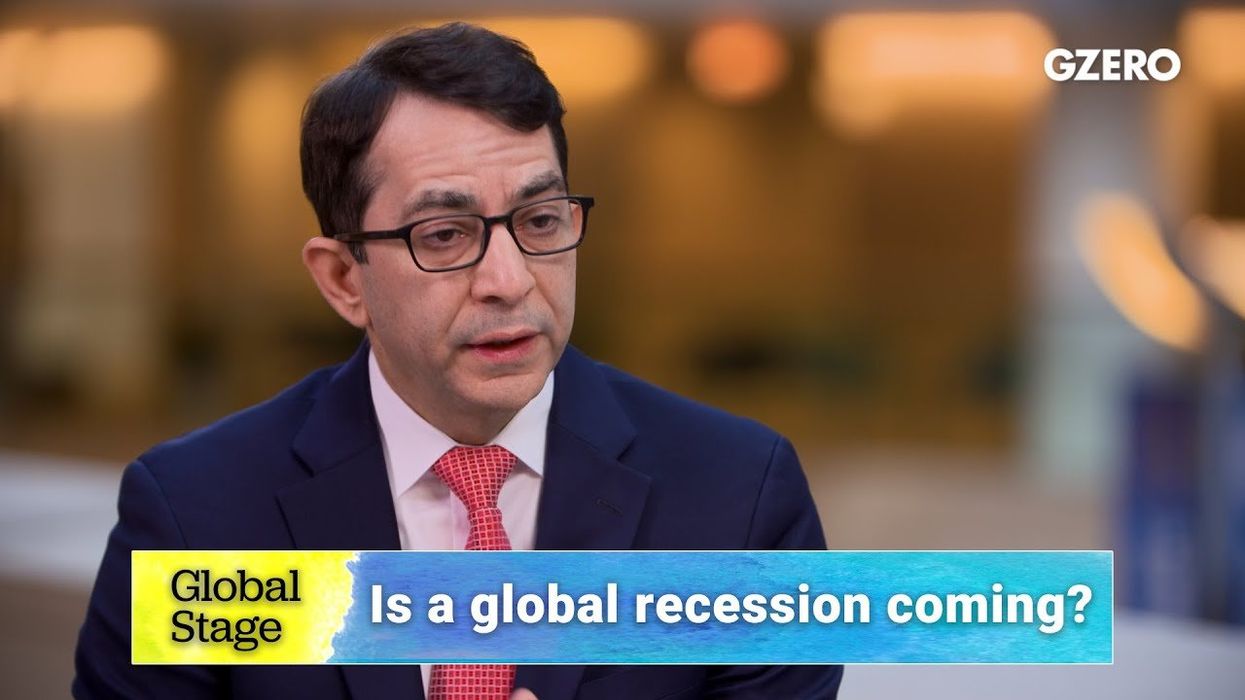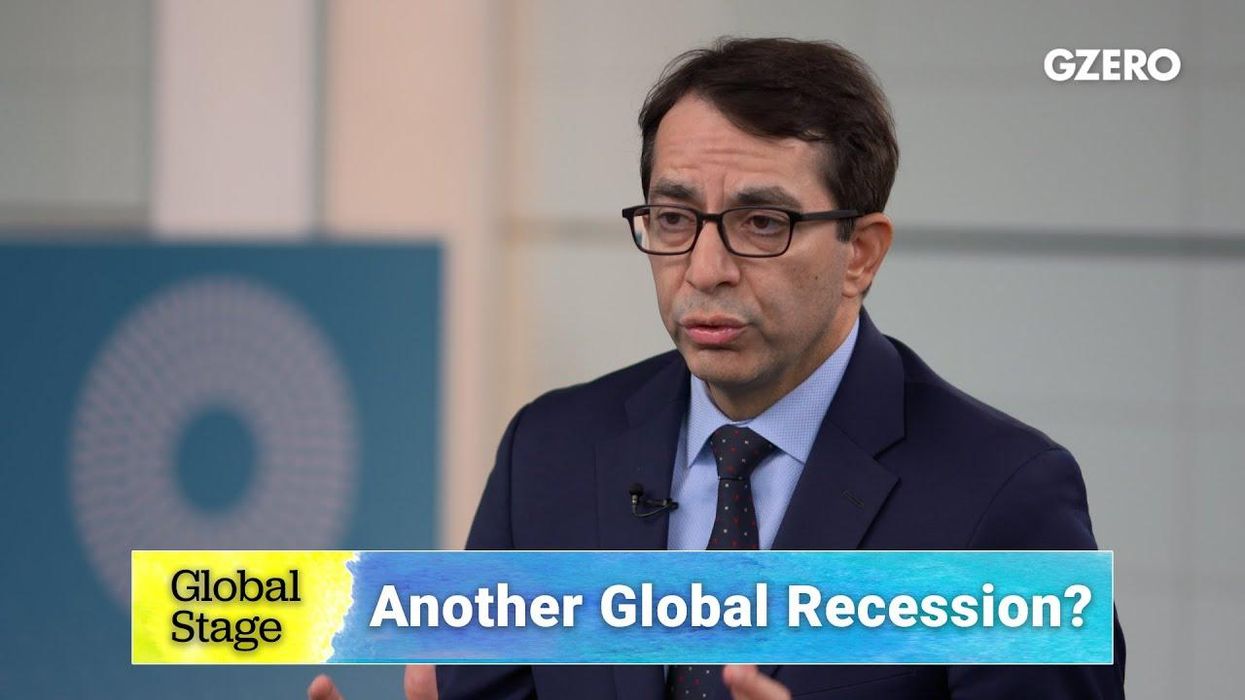Global Stage Interviews
Global economy at risk if Middle East conflict expands, says World Bank's Ayhan Kose
While the global economy shows signs of growth and decreasing inflation, the near future involves risks, including the escalation in the Middle East impacting oil prices, strained China-US relations, and an increasingly challenging tariff and trade environment, said Ayhan Kose, World Bank Deputy Chief Economist. He discussed the geopolitical tensions influencing the global economy with GZERO's Tony Maciulis at the IMF and World Bank Annual Meetings in Washington, DC, in a GZERO Global Stage interview.
Oct 24, 2024




